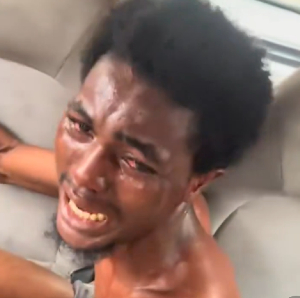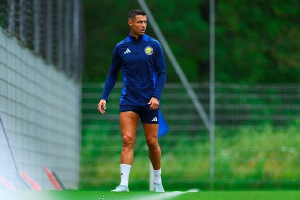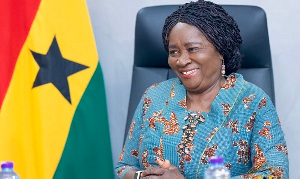By Kwame Okoampa-Ahoofe, Jr., Ph.D.
Garden City, New York
July 24, 2014
Somebody I have been vehemently disagreeing with for quite awhile now, recently wrote that he yearned for a Rawlings-type revolution in Ghana. Like me, that scoundrel has been living here in the United States for ages. I did not get to read the article in question; the very hollow and infantile caption of the aforesaid article turned me off. You see, I have been arguing for quite sometime now that the South Carolina-resident Dr. McHypocrite is a pathological opportunist who once erroneously saw a chance to finesse his way into the top-echelons of the main opposition New Patriotic Party (NPP) with the hope of horse-riding it into the Flagstaff House. Fat chance, SOB!
It is also very much in keeping with his rather rudimentary understanding of what a real "revolution" means. And the critical thinker and avid observer of the Ghanaian political landscape can just fathom precisely the fate that would befall our beloved country, if such a rascal were to be entrusted with the democratic reins of governance. Those of my age - I am slightly past 50 - and older are well aware of the fact of us having gone this way several times before.
In other words, the sort of gun-barrel revolution sought by Dr. McHypocrite is what indisputably, as well as inescapably, brought us to our present state of unspeakable decadence and abject corruption at all levels of our national existence. What we need, presently, is what His Majesty, the Okyenhene, Osagyefo Amoatia Ofori-Panyin II, put his finger on, when the President of the Eastern Regional House of Chiefs (the first of its kind in the contemporary era) noted perspicuously recently, that "Instead of having a revolution of coups d'etat, maybe what we need is a revolution of attitudes and values" (See "Ghana Needs a 'Revolution' - Okyenhene" TV3 Network.com 7/24/14).
This is also what the Chinese once called a "Cultural Revolution." The fact of the matter is that in the stubborn realm of the human, a cultural revolution is virtually impossible to negotiate or successfully execute without a remarkable modicum of coercion. At least that is what the Ghanaian experience points to; which may well be the reason why Dr. McHypocrite feels so morbidly nostalgic about the bloody Rawlings revolution of the late 1970s and throughout much of the 1980s. The ironic problem here, though, is that it is the same Rawlings-groomed revolutionaries who are today almost singularly responsible for the rank and indescribable state of corruption and socioeconomic regression in which most Ghanaians find themselves.
And so, yes, perhaps putting a few heads on the chopping block - I know whose head would be first on my chopping block, should it come to that - may well do the trick, momentarily, that is. And then how do we go at it from then on? Keep chopping a few more of the most irredeemably corrupt noggins at regular intervals in order to stay the proverbial course? I doubt it. Rather, what needs to happen is to thoroughly reconfigure the mode of operation of the most salient institutions in our polity, namely, our judicial and/or justice and policing system, educational and the civil service apparatuses.
Surprisingly, and you better believe it, we have done this before - and doubly surprisingly, it happened under a military junta. And it was not induced by the primitive and downright barbaric chopping-block methodology. What I am alluding to here occurred under the Acheampong-led junta of the so-called National Redemption Council (NRC), under such salutary program as Operation Feed Yourself, the most successful of its kind in our nation's postcolonial history.
The beauty of it was that Operation Feed Yourself (OFY) was not only about putting the proverbial three-square meals on the family's dining table, under the unquestionably competent guidance and leadership of Col. Frank George Bernasko; it was also about Uncle Frank, as the good, old colonel came to be popularly known, and another of his peers, Col. Paul Kwame Nkegbe, keeping teachers, pupils and parents on their toes. But here, also, the question of whether such a revolutionary modus operandi has any practical chance for success would largely depend on the contents of the school curricula, from pre-kindergarten level to doctoral education.
Thus when the Okyenhene talks about the need for Ghanaians to "revolutionize attitudes and values," he is clearly to be understood to be issuing a clarion call for the drastic and thorough overhaul of the totality of what legitimately passes for our collective societal ethos and mores. "Leadership," in the quite pensive words of the Okyenhene, is the possession of "a creative mind" which the possessor is willing to put to the collective and beneficial use of society at large. Could the current crop of Ghanaian leaders be credibly described as creatively progressive and socially responsible?
Your guess is as sound as mine, dear reader.
___________________________________________________________
Opinions of Monday, 28 July 2014
Columnist: Okoampa-Ahoofe, Kwame














